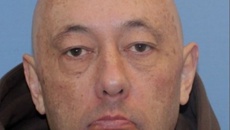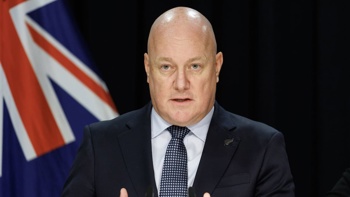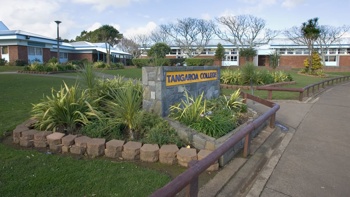UPDATED 7.10pm A security expert's calling for more scrutiny of foreign students coming here to study.
LISTEN ABOVE: Security analyst Paul Buchanan spoke to Tim Dower on Summer Breakfast
It follows the gunning down of a former New Zealand student by police in Saudi Arabia.
They say Taie bin Salem bin Yaslam al-Saya'ari planned an attack last year at one of Islam's holiest sites.
After the shoot-out over the weekend they found two explosive belts, two machine guns, a home-made grenade and basins filled with chemicals.
Strategic analyst Paul Buchanan told Tim Dower it was inevitable something like this would happen.
He believes Taie bin Salem bin Yaslam al-Saya'ari studied at Auckland University and came and went some time ago.
A university spokesman confirmed Taie bin Salem bin Yaslam al-Saya'ari had done some study in New Zealand in 2008 and 2009.
"He took part in the English Language Preparation programme at the English Language Academy in Auckland from mid-2008 to mid-2009, but did not progress into further study at the University."
Mr Buchanan said there's no security vetting of students who come to schools or universities here from Saudi Arabia, or other hotbeds of extremism such like Pakistan.
Immigration Lawyer Alastair McClymont said students coming from areas like Saudi Arabia are subject to very minimal security checks.
"Students will need to provide a police clearance certificate, so that's only going to show whether or not there's a conviction in their home country. Then the form asks the student whether or not they're involved in any terrorist organisations and if they answer 'no' then that's fine, they are through."
Mr McClymont said almost all the verification done on international students is around whether they have the funds to study.
"Well it's my understanding that the Saudi government pays for its citizens to study overseas. If that is the case then I would have thought that Immigration New Zealand would very little vetting and verification to actually do.
In fact, Paul Buchanan said there are favourable student visa schemes for both these countries signed during the fifth Labour government and which continue to this day.
Dr Buchanan said it's possible some might be dangerous and might hone their skills in our universities, particularly in the hard sciences.
Dr Buchanan said we may see more of this.
Bill English is playing a different tune although he can't comment on the specifics of the case.
He said intelligence agencies and border agencies keep a close eye on who's coming in and who's leaving.
Mr English said it's some time since the man studied in New Zealand, and security is probably tighter now than it was then.
After 9\11 a serious clamp down on student visa entry into the United States and UK, so other English speaking countries became attractive to students from the Middle East, particularly those countries with a good academic reputation like New Zealand.
Dr Buchanan said the fifth Labour government jumped at the opportunity to welcome such students into the country, but without any security vetting.
He describes that as naive, given the level of corruption in places like Saudi Arabia and Pakistan.
Dr Buchanan said 90 to 95 percent of students coming from the Middle East are legitimately interested in getting a degree, and some are the idle children of the Saudi Arabian rich are sent here because they're pretty useless and their parents want to get rid of them for a while.
"That doesn't make them any less dangerous should they get radicalised, but at least they're not honing their skills getting PhD's in chemistry or a Masters in Engineering. However some of them may have a specific design in mind, and those are the ones we should be worrying about".
When he worked at Auckland University, Dr Buchanan said he was told the University was not in the business of security vetting foreign students. When he asked who did, he was told no-one, not the police, not immigration and not the SIS. He believes that is an invitation for trouble.
He believes the SIS in particular should approach partner security agencies to vet students, even if that means reducing the numbers allowed here.
"We should not risk our national security and our reputation, just for some foreign student fees. That unfortunately is the reverse of the logic at play now. Money talks much louder than security concerns."
Immigration NZ says security reasons mean they can't disclose any details of their vetting process.
Take your Radio, Podcasts and Music with you









